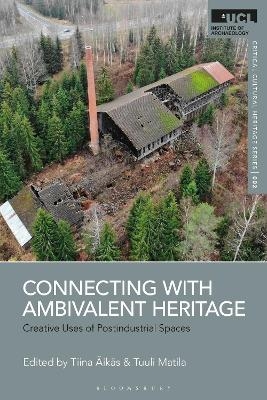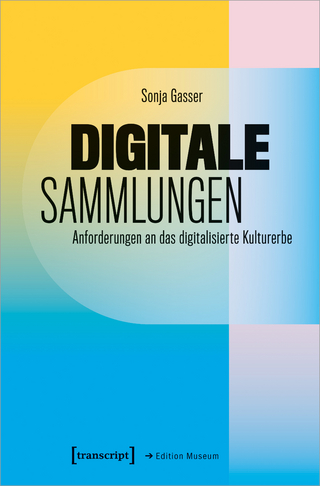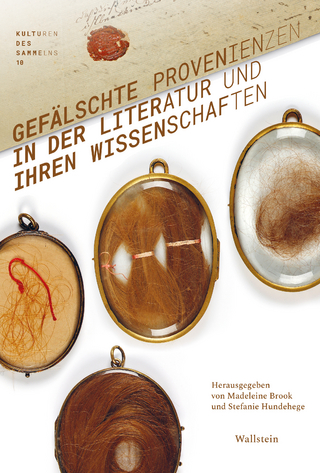
Connecting with Ambivalent Heritage
Bloomsbury Academic (Verlag)
978-1-350-42674-0 (ISBN)
Ambivalent heritage sites are not always recognized for their potential, although artists and people from different recreational activities, such as industrial sites and parkour, use and experience these places in different ways. The contributors introduce fresh ideas on how to approach these sites and the people invested in them, employing multidisciplinary methodologies from archaeology and heritage studies to ethnography and sociology. Through the use of Northern-European case studies such as a former sanatorium, a prison and the Chornobyl Exclusion Zone, the reader gains a new perspective on these sites of contestation, which are cherished despite their problematic status. The conclusion is that due to the rapid societal change we are experiencing in the contemporary world, heritage professionals must start to acknowledge and deal with the difficulties that ambivalent heritage sites pose.
Tiina Äikäs is a Senior Researcher in Archaeology at the University of Oulu, Finland. She specialises in contemporary archaeology and heritage, with an emphasis on industrial heritage and sacred places. Tuuli Matila is a Postdoctoral Researcher in Archaeology at the University of Oulu, Finland. She specializes in contemporary archaeology, heritage and representational studies.
List of Illustrations
List of Contributors
Preface
Acknowledgements
Introduction: Connecting with Ambivalent Heritage – Creative uses of Post-industrial Spaces
Eerika Koskinen-Koivisto (University of Jyväskylä, Finland), Tiina Äikäs (University of Oulu, Finland) and Pauliina Latvala-Harvilahti (University of Turku, Finland)
1. “Renegade Care”: Conservation, Co-curation, and Heritage Place-Making in Liminal Spaces
Alexa Deanne Spiwak (University of Oslo, Norway)
2. Suburban Heritage as Tourist Attraction?
Minni Haanpää, Maria Hakkarainen and Anu Harju-Myllyaho (University of Lapland, Finland)
3. Local Activism and Agency in the Heritagisation Processes - The Case of Forests in the Paimio Sanatorium, Finland
Maija Mäki and Helena Ruotsala (University of Turku, Finland)
4. Masculinity, Smokestacks and the Decline of Industry: Visualizing Industrial Heritage in Social Media
Tuuli Matila (University of Oulu, Finland)
5. Co-constructing Chornobyl: Investigating Visitors’ Heritage Meaning-Making through Performativity in the Chornobyl Exclusion Zone
Veera Ojala (University of Turku, Finland)
6. Spiralling into a Labyrinth of Cultural Fantasies and Extractivism: Treasures, Extraordinary Undergrounds, and the ‘Temple of Lemminkäinen’ (Sipoo, Finland)
Vesa-Pekka Herva (University of Oulu, Finland), Oula Seitsonen (University of Oulu, Finland), Tina Paphitis (University of Bergen, Norway), Teresa Komu (University of Lapland, Finland), Gabriel Moshenska (UCL, UK) and Risto Nurmi (University of Oulu, Finland)
7. Uses of the Industrial Mining Past: The Revitalisation of Old Mines as New Outdoor Spaces in Sweden
Albina Pashkevich and Daniel Brandt (Dalarna University, Sweden)
8. 8.What the Muggles Don’t See: Affordances of Abandoned Industrial Sites for Hobbyists
Tiina Äikäs, Marjo Juola, Oula Seitsonen (University of Oulu, Finland) and Gabriel Moshenska (UCL, UK)
9. Photo Essay: Remaining without Preservation: The Zombie Standing of Kino Rodina in Estonia
Francisco Martinez (Estonian Academy of Arts, Estonia)
10. Discussion: The Discomforting Appeal of Ambivalent Heritage
Hilary Orange (Swansea University, UK)
Notes
Bibliography
Index
| Erscheinungsdatum | 22.08.2024 |
|---|---|
| Reihe/Serie | UCL Critical Cultural Heritage Series |
| Zusatzinfo | 45 bw illus |
| Verlagsort | London |
| Sprache | englisch |
| Maße | 156 x 234 mm |
| Themenwelt | Kunst / Musik / Theater |
| Geisteswissenschaften ► Archäologie | |
| Geisteswissenschaften ► Geschichte ► Hilfswissenschaften | |
| Sozialwissenschaften ► Ethnologie | |
| Sozialwissenschaften ► Soziologie | |
| ISBN-10 | 1-350-42674-1 / 1350426741 |
| ISBN-13 | 978-1-350-42674-0 / 9781350426740 |
| Zustand | Neuware |
| Informationen gemäß Produktsicherheitsverordnung (GPSR) | |
| Haben Sie eine Frage zum Produkt? |
aus dem Bereich


